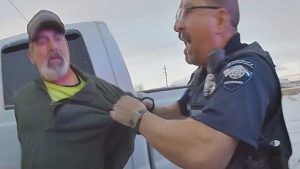by Carol Dunn
HUERFANO-Apparently there have been other cattle in Huerfano County that tested positive for bovine tuberculosis (BTB) in 2010. According to Dr. Keith Roehr with the State Veterinarian’s Office, one other small local herd tested positive and has been depopulated. The owner of the herd had purchased a calf from the Corsentino dairy. Roehr said the State Vet’s Office is, as a process of “due diligence,” conducting assurance testing for BTB on several herds in Huerfano County which took in Corsentino calves. He added, “Right now there are no other cases in Huerfano County that have been confirmed. That could change. We don’t know how many calves came out of that dairy, and we’re tracing those calves.” Roehr said a few were found and depopulated. “Everything that was infected, we’ve responded to,” he said.
According to Rick Wahlert, Director of the Colorado Brand Inspection Division, sales of dairy calves less than 10 days old are required to be tracked by Division paperwork, but the Brand Inspector is not directly involved.
Roehr said that through 80 traces, a few other locations were found, either producers who bought them directly or bought them at a sale. A number of operations throughout Colorado are under a hold order so the State Vet’s Office can test the animals and get the results back before they are moved. Roehr said the calves are difficult to trace because they were not tagged. “A lot of them are gone,” he said.
The State Vet’s Office is diligent about tracking the animals because the county’s – and even the state’s – “TB-free status” is at stake. If the area is certified TB-free, the State will pay for BTB testing and depopulation. If that certification is lost, those costs are borne by individual producers who are affected.
If you purchased a calf from the dairy, you are urged to get your animal(s) tested immediately. If you are using the animal for dairy, do not consume raw milk from that cow until you are certain it is not infected by BTB, as BTB can be transmitted to humans.
If you have questions or concerns about BTB, contact the State Vet’s Office at (303)239-4161.




